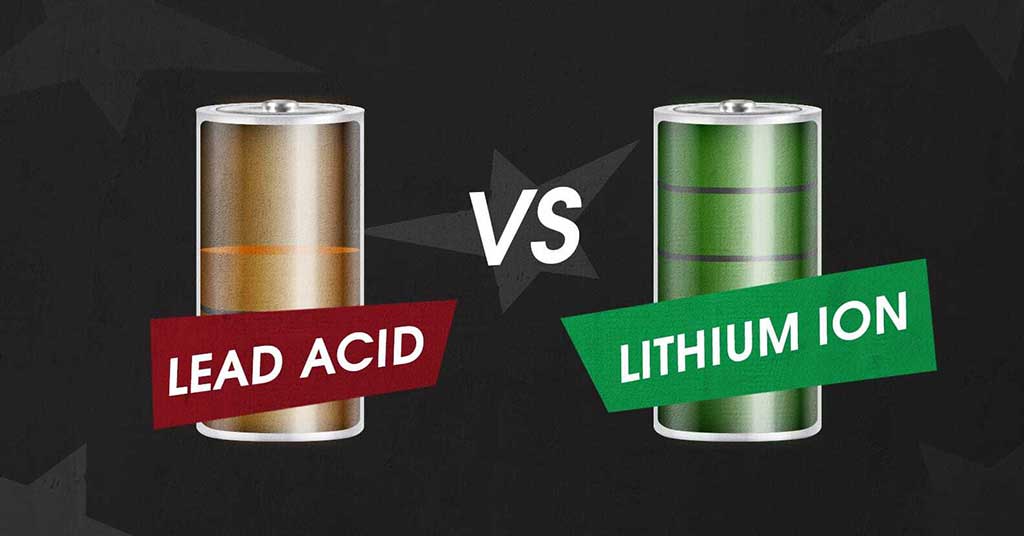Choosing Between Li-Ion and Lead-Acid Batteries for Underwater Systems
When selecting an underwater video or communication system, one of the most important considerations is the type of battery powering your equipment. Two common options are Li-Ion (Lithium-Ion) and Lead-Acid batteries. Each type has unique advantages and is suited for different operational needs. Understanding these differences will help you choose the right system for your diving projects.
Lithium-Ion (Li-Ion) Batteries
Advantages:
- Lightweight and Compact: Li-Ion batteries are significantly lighter than lead-acid batteries, making portable systems easier to handle.
- High Energy Density: They store more energy in a smaller size, allowing longer operation times without increasing bulk.
- Fast Charging: Li-Ion batteries can be recharged more quickly than lead-acid batteries, minimizing downtime between dives.
- Maintenance-Free: Li-Ion batteries do not require periodic maintenance such as topping off water, making them convenient for regular use.
- Long Lifespan: Typically, Li-Ion batteries can handle hundreds of charge cycles without significant capacity loss.
Best For:
Professional divers who need lightweight, high-performance systems, long operational hours, and minimal maintenance.
Lead-Acid Batteries
Advantages:
- Cost-Effective: Lead-acid batteries are generally less expensive upfront compared to Li-Ion.
- Durable and Robust: They are less sensitive to extreme temperatures and mechanical stress.
- Proven Technology: Lead-acid batteries have been used for decades in industrial and underwater equipment, providing a reliable, familiar option.
Limitations:
- Heavier and Bulkier: They add significant weight, which may affect portability.
- Slower Charging: Recharging takes longer, which can increase downtime between operations.
- Maintenance Required: Regular checks and water refills are needed to maintain battery health.
Best For:
Projects with lower mobility requirements, shorter operational durations, or where budget constraints are critical.
How to Choose the Right Battery for Your System
When deciding between Li-Ion and Lead-Acid batteries, consider the following factors:
- Duration of Use: For extended dives or continuous operation, Li-Ion batteries offer longer runtimes.
- Portability: If the system needs to be carried frequently, Li-Ion is lighter and more convenient.
- Maintenance Availability: Li-Ion is almost maintenance-free, while lead-acid requires regular attention.
- Budget: Lead-acid systems are typically less expensive initially but may incur more long-term maintenance costs.
- Project Type: For high-performance or professional projects, Li-Ion is generally preferred. For occasional or stationary use, lead-acid can be sufficient.
Conclusion
Choosing the right battery type is crucial to maximize efficiency, safety, and convenience in underwater operations. Li-Ion batteries are ideal for professionals needing high performance, portability, and long runtimes, while Lead-Acid batteries remain a reliable, budget-friendly option for less demanding applications. Understanding your operational needs will ensure you select the system that best supports your diving projects.
